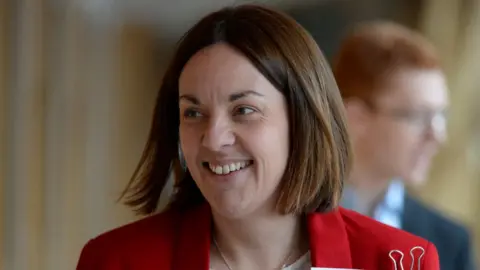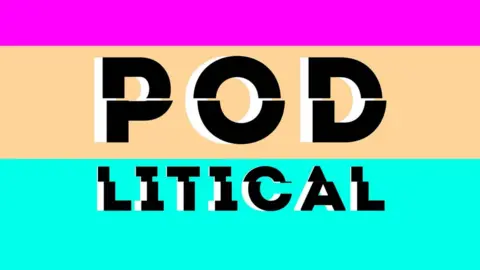Kezia Dugdale quits Scottish Labour over Brexit
 Getty Images
Getty ImagesFormer Scottish Labour leader Kezia Dugdale has quit the party over its stance on Brexit, the BBC has learned.
Ms Dugdale terminated her party membership in July, shortly after she stood down as an MSP.
She has told friends she did not vote for the party in May's European election, while still a Labour MSP.
Political correspondent Nick Eardley told BBC Scotland's Podlitical podcast that it is not known who, if anyone, Ms Dugdale did vote for.
Ms Dugdale led Scottish Labour for two years before quitting the post in August 2017. She continued to sit as an MSP until June of this year, when she left politics to take a job with the John Smith Centre at Glasgow University.
She has been a long-standing critic of Labour leader Jeremy Corbyn, and has been disillusioned with the party's stance on Brexit in particular.
Ms Dugdale describes herself as "proudly pro-European" and backed Remain ahead of the EU referendum. She has also been a prominent supporter of holding another referendum on EU membership.


You can hear more on this story by listening to the Podlitical podcast, which brings you the latest chat from Holyrood and Westminster through the eyes of BBC Scotland journalists.
You can listen to the latest episode here, or wherever else you get your podcasts from.

She also questioned how anyone can trust Labour after it decided to stop funding her defence in a legal case brought by pro-independence blogger Stuart Campbell, of the Wings Over Scotland site.
Ms Dugdale is in a relationship with SNP MSP Jenny Gilruth, but has previously dismissed speculation that she could join the SNP or any other party in the future.
When she appeared on Podlitical in June, Ms Dugdale said: "I'm not going to leave the Labour Party to join any other political party. I've devoted my whole adult working life to the Labour movement as a volunteer, as an activist, as a party press officer, as a party organiser as a politician.
"It has been my life and I am Labour because I believe in equality, I believe in the power of the state to eradicate poverty and to create opportunity".
She also said she believed it was increasingly likely that another independence referendum would happen - but predicted that Scots would not vote to leave the UK until the SNP was able to work out "credible answers" to questions about the economic impact, including about what currency an independent Scotland would use.
